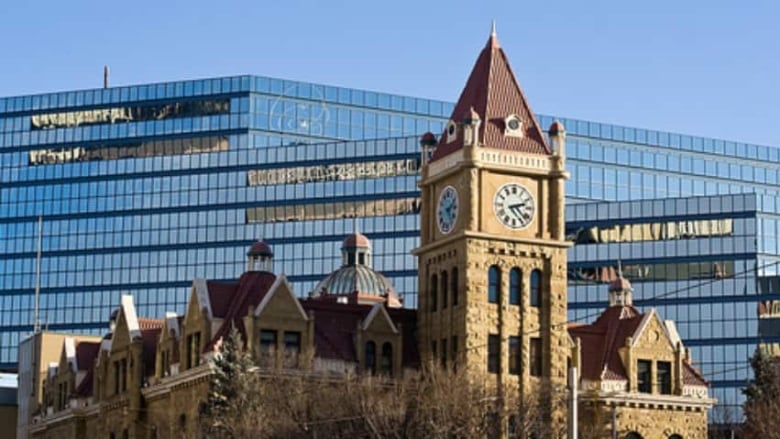Votes on speed limit, fluoride and province’s fiscal arrangement could be added to ballot

Calgary’s city council is expected to decide Monday whether a number of issues will be added to the municipal ballot. (CBC)
City council is expected to decide Monday whether some contentious issues will be added to the ballot for this fall’s municipal election.
Administration is suggesting council reject putting a possible change in the default speed limit in residential areas to a plebiscite.
Last fall, council asked administration to look at putting the question of whether reducing the speed limit from 50 kilometres an hour to 40 on many residential streets is a good one for a plebiscite.
The answer from city officials is that it would come with numerous risks.
In a report to council, administration says it’s challenging to come up with a clear yes or no question for voters.
Due to the complex nature of the issue, it says that there would have be a communications strategy to ensure voters are adequately informed about the proposed speed limit change.
There’s also a suggestion that even holding a plebiscite could set a precedent for future councils that could be reluctant to make decisions on health and safety issues.
Direction needed
Administration is looking for direction from council on two other possible plebiscite topics.
It wants to know if council wants to ask voters if they support returning fluoride to Calgary’s drinking water and whether voters want council to ask the provincial government for a new fiscal arrangement with the city.
Several members of council have signalled they do not support holding plebiscites on these issues.
Coun. Ward Sutherland said these questions aren’t appropriate for plebiscites.
“That’s what we’re elected to do, to make that decision because we’re sitting there listening to hours and hours of information from experts,” said Sutherland.
“A lot of the voters will be going in to vote and have got zero information but making a decision.”

Coun. Jeff Davison said plebiscites can be misrepresented and there are concerns about voters making an informed decision.
“There is currently no existing funding to establish an education program to further present the facts to Calgarians should the plebiscite be approved,” he wrote in a blog post regarding the speed limit change.
Let voters decide
But Coun. Sean Chu said politicians should not be afraid to trust voters with controversial decisions, especially ones where the electorate is split.
“Something contentious and [an] issue that affects everybody? I think it’s a good idea and good governance to do a plebiscite,” said Chu.
“I think that the attitude of I know better is very dangerous attitude, especially for a politician.”
Calgary has held five plebiscites on fluoride in the past, dating back to the 1950s.
City council voted in 2011 to remove fluoride from Calgary’s drinking water.
Plebiscites or “votes of the electors” as they’re officially known at city hall are non-binding on council.
The last plebiscite held in the city was in 2018. The topic was whether Calgary should bid for the 2026 Winter Olympic and Paralympic Games.
Fifty-six per cent of those casting a ballot voted against the idea and soon after, council voted to halt work on a bid.
Calgary’s next municipal election will be held Oct. 18.
*Original article online at https://www.cbc.ca/news/canada/calgary/city-council-plebiscites-election-1.5894610
